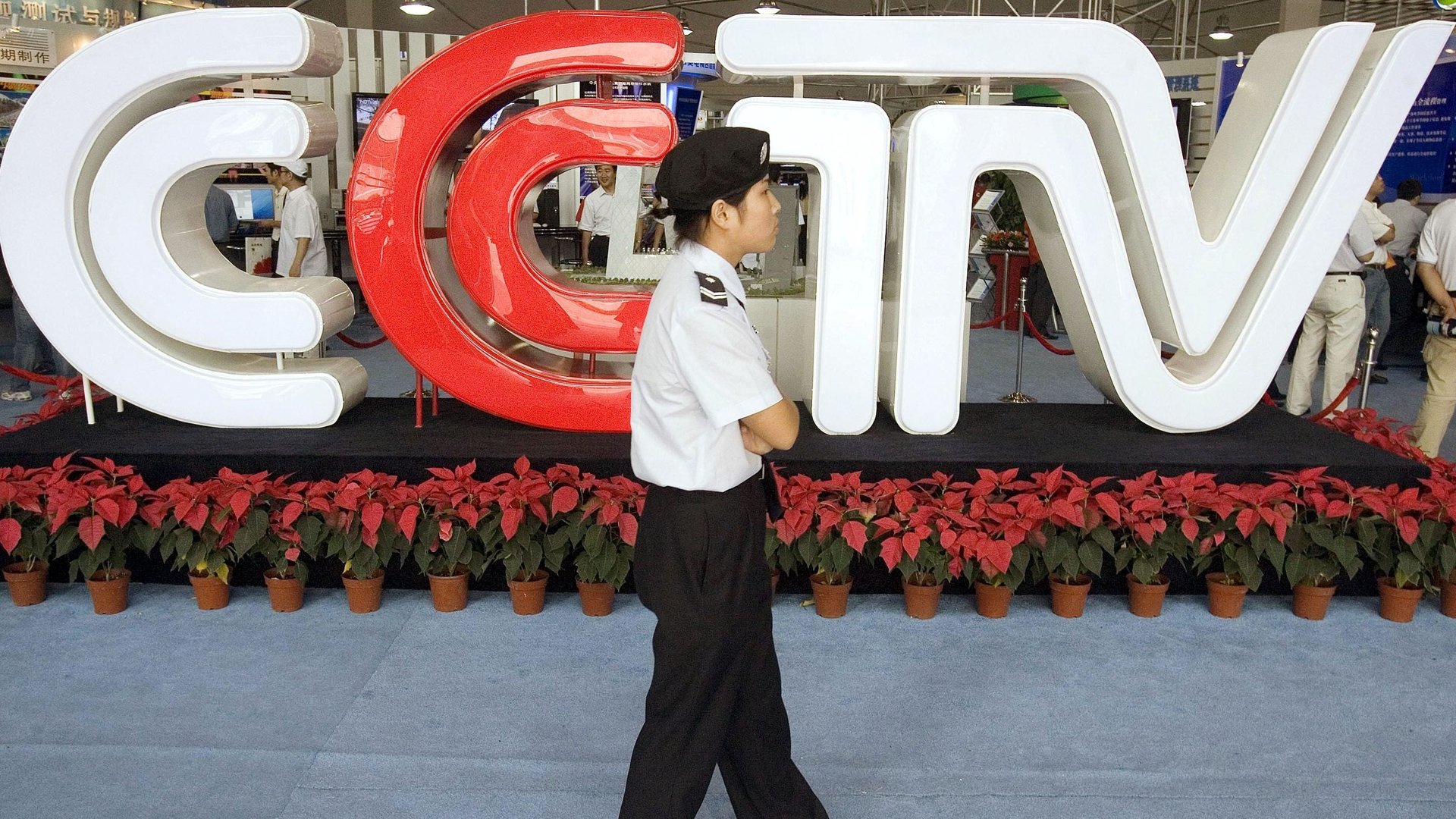China is celebrating a state media reporter who slapped a volunteer at a UK conference
A Chinese reporter based in the UK who slapped an attendee at the Conservative party’s conference is being hailed as a hero at home.


A Chinese reporter based in the UK who slapped an attendee at the Conservative party’s conference is being hailed as a hero at home.
Kong Linlin, a journalist who works for state television network CGTN (formerly known as CCTV), heckled human-rights activist and China critic Benedict Rogers during a session on Hong Kong’s political situation on Sunday (Sept. 30). The event was also attended by pro-democracy figures from Hong Kong including student leader Nathan Law and scholar Benny Tai, who was one of the chief architects of 2014’s Occupy protests. Kong accused Rogers of wanting to “separate China,” and accused the Hong Kong attendees of being “traitors.”
Kong then slapped Enoch Lieu, a volunteer at the event, when he tried to remove her from the event. The incident was detailed on Twitter by Lieu.
Hong Kong Watch, a London-based NGO advocating for greater freedoms in Hong Kong, shared a video of the incident.
Kong was arrested by police after the altercation and was released last night (Oct. 1) without charges—swiftly by British authorities “under the pressure of the Chinese Embassy in the UK and of public opinion,” according to her employer.
In a statement yesterday, the Chinese embassy in London said that the conference organizers “boosted the arrogance of the anti-China separatists” and that hosting the Hong Kong speakers—whom Beijing deems as separatists—was a form of “interference” in China’s domestic affairs. It also said the journalist was simply exercising her right to ask questions, while a second statement today (Oct. 2) called on British authorities to protect the rights of Chinese journalists. CGTN released a similar statement (link in Chinese).
Rogers said in a series of tweets that the Chinese embassy’s claims that Kong was ejected for merely asking a question or expressing her opinion were “complete nonsense,” adding that “we don’t welcome shouting, screaming, lying and assault.”
Kong did not immediately respond to multiple requests for comment by Quartz. However, she responded this morning (link in Chinese) to a comment on Chinese social network Weibo from a user supporting her actions, saying she was unable to call the police even though she had been physically attacked first, because her freedom of movement had been restricted.
There were numerous other such remarks expressing support for Kong’s actions. ”Please support and reward a journalist who’s determined to defend a country’s unity and dignity,” read a comment on Weibo under a news report about the incident. The comment has garnered more than 18,000 likes (link in Chinese). “I am here to ‘like’ your action. Thanks, you’ve helped us curse at British dogs and Hong Kong independence pigs,” read another (link in Chinese).
The fact that the incident occurred just one day before China celebrated its National Day on Oct. 1 also resonated with Chinese citizens. “You are the most beautiful goddess of China’s National Day holiday as you’ve defended China’s dignity,” said one user (link in Chinese).
According to a report by China Change, a website focused on reporting of human rights in China, Kong has a history of agitating Western media, including lobbing accusations in 2016 that a BBC correspondent was reporting false news on China and spreading “hate propaganda” for the British broadcaster.
The incident echoes a recent episode involving a Chinese family who was evicted by police from a hotel lobby in Sweden for checking in too early. After the video went viral, Beijing protested the “brutal mistreatment” of the Chinese citizens. In a further ratcheting up of tensions, Beijing responded angrily to a segment on a satirical Swedish news show about the incident that it said was racist, and told Swedish authorities to protect the interests of Chinese citizens there.